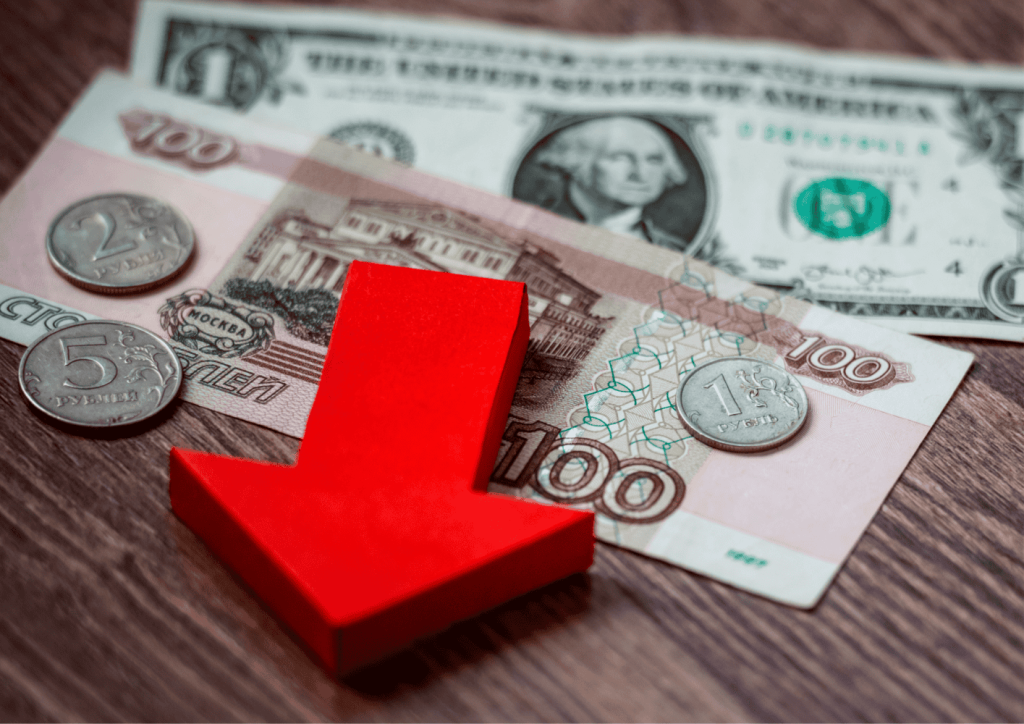Currency devaluation is a critical concept in the world of finance, particularly within the foreign exchange markets. This phenomenon occurs when a country deliberately lowers the value of its domestic currency relative to foreign currency. This strategic economic decision is often influenced by various factors, including efforts to boost a nation's export competitiveness or to address trade imbalances. Understanding currency devaluation is essential not only for forex traders and investors but also for anyone interested in the dynamics of global trade and economics.
The idea of a currency war, where countries competitively devalue their currencies, highlights the interconnectedness of global economies and the significance of currency values in international trade. Such scenarios can lead to a chain reaction affecting global markets and trade relations. As we delve deeper into the subject, it becomes clear that currency devaluation is more than a mere financial tactic; it's a tool that can influence a country's economic health and its position in the global market.
Understanding Currency Devaluation

Currency devaluation is a critical concept in the world of finance, particularly within the foreign exchange markets. This phenomenon occurs when a country deliberately lowers the value of its domestic currency relative to foreign currency. This strategic economic decision is often influenced by various factors, including efforts to boost a nation's export competitiveness or to address trade imbalances. Understanding currency devaluation is essential not only for forex traders and investors but also for anyone interested in the dynamics of global trade and economics.
The idea of a currency war, where countries competitively devalue their currencies, highlights the interconnectedness of global economies and the significance of currency values in international trade. Such scenarios can lead to a chain reaction affecting global markets and trade relations. As we delve deeper into the subject, it becomes clear that currency devaluation is more than a mere financial tactic; it's a tool that can influence a country's economic health and its position in the global market.
Impact on International Trade

The impact of currency devaluation on international trade is significant and multifaceted. When a country devalues its currency, the immediate effect is a change in the relative value of its currency against others. This alteration can make a country's exports cheaper and more attractive in foreign markets, potentially increasing sales overseas. Conversely, imports become more expensive for domestic consumers, which can reduce the volume of imported goods. This dynamic is a strategic move to address trade deficits—situations where a country's imports exceed its exports. By making exports more competitive and imports costlier, devaluation can help a country balance its trade ledger, moving towards a more favorable balance of trade.
In addition to affecting trade balances, currency devaluation also influences foreign investment. A weaker domestic currency can attract foreign investors looking for cheaper investment opportunities, boosting foreign capital inflows. However, this comes with the risk of inflation, as imported goods become more expensive, raising the cost of living. The role of market forces and exchange rates in this context is crucial. In a floating exchange rate system, the market determines the value of a currency, while in a fixed exchange rate system, the government or central bank sets the rate. These mechanisms play a pivotal role in how devaluation affects a country's international trade and economic stability.
Also Read: What Is Short Selling: Profit Making Strategy?
Currency Devaluation and the Global Economy

The broader impact of currency devaluation on the global economy cannot be understated. When a country devalues its currency, it doesn't just affect its own economy but also has ripple effects on foreign markets and other countries. For instance, a weaker currency can lead to a surge in a country's exports, potentially impacting the industries and employment in countries that compete in similar markets. Additionally, currency wars—a situation where multiple countries devalue their currencies for competitive advantage—can lead to increased economic uncertainty and volatility in global financial markets. These wars often result in retaliatory measures, disrupting international trade and cooperation.
International institutions like the International Monetary Fund (IMF) play a critical role in overseeing global economic stability. The IMF monitors the exchange rate policies of countries and provides policy advice, particularly in situations where currency devaluation might lead to unfair trade practices or disrupt economic balance. In navigating the complexities of currency devaluations and their effects, the IMF and similar entities strive to promote healthy and sustainable economic practices, ensuring that currency adjustments do not adversely impact the global economic order. This oversight is crucial in maintaining a level playing field in international trade and safeguarding against the negative aspects of competitive currency devaluations.
Devaluation Strategies and Effects

Devaluation strategies are often employed by countries to achieve specific economic goals, primarily boosting exports and shrinking trade deficits. By lowering the value of their currency, countries make their products more affordable and attractive in the global market, potentially increasing export volumes. This strategy aims to correct trade imbalances—a situation where a nation imports more than it exports. However, while devaluation can stimulate export-driven sectors, it also has significant effects on domestic consumers and industries reliant on imports. Imported goods become more expensive, leading to increased costs for both consumers and businesses that depend on foreign raw materials or products.
A notable example of this strategy is when Mexico devalued its currency. This move was aimed at making Mexican goods more competitive in the international market, especially against the backdrop of economic challenges and trade competition. The devaluation initially helped in increasing exports, providing a boost to the Mexican economy. However, it also resulted in higher prices for imported goods, affecting domestic consumer markets and industries that relied on imports. This example underscores the dual nature of devaluation effects—while it can provide a competitive edge in foreign markets, it can also lead to inflationary pressures and increased living costs at home. The balance between these outcomes is crucial for the overall health of a nation's economy.
The Role of Government and Monetary Authorities
The role of a country's government and monetary authority is pivotal in managing currency depreciation. These entities, typically represented by the central bank or a similar regulatory body, are responsible for formulating and executing monetary policy, which includes decisions on currency valuation. In managing a country's currency value, these authorities must balance various economic factors such as inflation, employment, and economic growth. One key tool in their arsenal is the manipulation of interest rates. By adjusting interest rates, a central bank can influence the value of its currency; higher interest rates generally bolster a currency's value, while lower rates may lead to depreciation.
Another crucial aspect of the government's role is in managing national debt payments. A country with high levels of debt might opt for currency devaluation as a strategy to reduce the real value of its debt obligations, making them more manageable in the context of its own economy. However, this strategy can be risky, as it may lead to loss of investor confidence and increased borrowing costs in the future. It's a delicate balancing act: maintaining a stable currency value while ensuring the overall health and growth of the economy. The effectiveness of these measures greatly depends on the country's economic context and the global financial environment, making the role of governmental and monetary authorities complex and critical.
The Long-Term Impact of Currency Devaluation in Forex

The long-term impact of currency devaluation in Forex trading and global finance is a topic of considerable significance. For traders and investors in the foreign exchange markets, understanding these impacts is crucial for making informed decisions. Over the long term, devaluation can lead to increased volatility in currency values, affecting the predictability and stability of Forex markets. For countries that frequently devalue their currency, this can result in a loss of investor confidence, leading to less foreign capital inflow and potentially impacting the country's economic growth. Furthermore, consistent devaluation may influence the perceived creditworthiness of a nation, affecting its ability to borrow on international markets.
However, there are also potential positive impacts. For instance, a devalued currency can make a country's exports more competitive over the long term, potentially leading to a more favorable balance of trade. This increase in exports can stimulate domestic industries and can lead to job creation and economic expansion. But, it's important to note that these benefits can be offset by the increased cost of imports, which can lead to inflation and reduce the purchasing power of domestic consumers. The overall long-term impact of currency devaluation thus depends on a variety of factors, including the country's economic policies, global market conditions, and the responses of trading partners and international investors.
Conclusion
Currency devaluation is a powerful yet complex monetary policy tool. It can effectively address trade imbalances and boost exports, aiding economic growth. However, this strategy is not without its risks. Devaluation can lead to unfair competitive advantages in global trade and potentially strain international relations. Domestically, it can negatively impact import-reliant sectors and fuel inflation, diminishing consumer purchasing power. Thus, while devaluation can provide short-term economic benefits, it demands cautious use and vigilant oversight to ensure balanced benefits for both the national and global economies.
Also Read: The Market Structure in Forex
FAQs
What is Currency Devaluation?
Currency devaluation is the deliberate reduction in the value of a country's currency relative to other currencies. It's often implemented by central banks to make domestic exports more competitive in international markets and correct trade imbalances.
How Does Currency Devaluation Affect International Trade?
Currency devaluation can boost a country's exports by making them cheaper and more attractive in foreign markets. However, it also makes imports more expensive, which can lead to inflation and impact the domestic economy negatively.
What are the Risks of Currency Devaluation?
While currency devaluation can stimulate export-led growth, it also carries risks like creating unfair competitive advantages in international trade and causing domestic inflation. These effects can lead to strained international relations and reduced domestic purchasing power.











